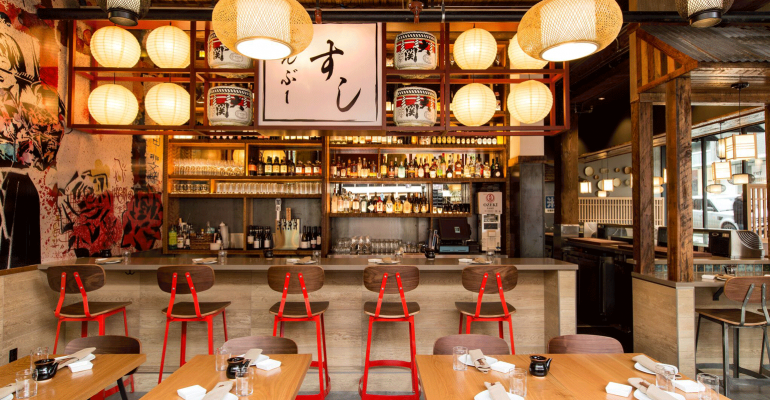The parent of Bamboo Sushi and QuickFish filed for Chapter 11 bankruptcy on Tuesday to maintain operations as the company seeks a buyer.
Founded in 2008 in Portland, Ore., as a company dedicated to sustainably sourced seafood and environmentally designed restaurants, Sustainable Restaurant Holdings, or SRH, said the strain from the coronavirus-related shutdown forced company officials to reassess whether they could survive post-COVID-19.
As part of the restructuring plan, the company has received the commitment for $1.9 million in debtor-in-possession financing, subject to court approval, led by Bain Capital Double Impact fund to meet existing obligations while it seeks a buyer. The sale process is expected to be completed within about 90 days, the company said.
“We are facing the same challenges as many other consumer-focused businesses, especially those in the restaurant industry,” said Matthew Park, SRH president and interim CEO. “In this environment, we simply are not able to generate sufficient revenue to meet our day-to-day and long-term obligations.”
SRH operates 10 restaurants in Oregon, Washington state, Arizona, California and Colorado. All were closed for dine-in operations, but three units shifted to takeout and delivery in an attempt to weather the COVID-19 storm, court documents said.
Revenue in 2019 totaled $18 million, up 35% from the prior year. Before the shutdown, the company had 480 employees at restaurants and the corporate headquarters in Portland, and all but 38 were furloughed or laid off.
The company listed assets between just over $10 million and $50 million and liabilities between just over $1 million and $10 million.
The company hired BMO Capital Markets to pursue either debt or equity investors or a sale, but “it became clear that the needed incremental financing was not available in the current market conditions,” and bankruptcy was needed.
“Our goal is to emerge from this process as quickly as possible with a strengthened balance sheet and the necessary capital to rehire our furloughed employees and resume operations at our restaurants whenever it is safe to do so,” said Park.
Contact Lisa Jennings at [email protected]
Follow her on Twitter: @livetodineout





